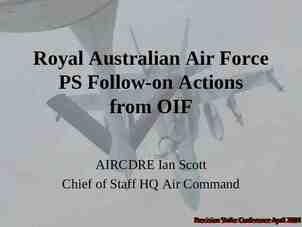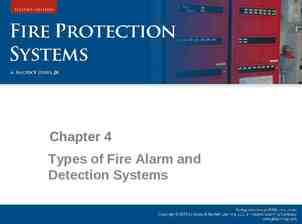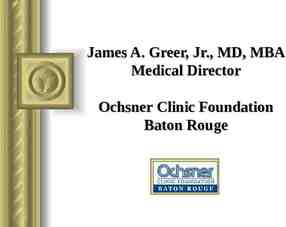PACIFIC CONSTITUTIONAL NETWORKING CONFERENCE The role of customary
15 Slides790.84 KB

PACIFIC CONSTITUTIONAL NETWORKING CONFERENCE The role of customary authorities in the Constitution compared to customary roles – Manus case study University of South Pacific, Port Vila, Vanuatu 23rd -25th November 2016 Presented By: Lucy Mathew- Legal OfficerPNG Constitutional & Law Reform Commission

OUTLINE PART A. INTRODUCTION PART B. AIM OF THE PAPER PART C. METHODOLOGY & SOURCE OF INFORMATION PART D. ROLE OF CUSTOMARY AUTHORITY IN THE CONSTITUTION- S 10 OLPGLLG PART E. CUSTOMARY ROLE OF CUSTOMARY AUTHORITY- MANUS CASE STUDY PART F. FINDINGS PART G. CONCLUSION/RECOMMENDATION

PART A - INTRODUCTION Customary authority in my presentation refers to Chiefs or the Chieftaincy system. Societies in Papua New Guinea that maintains the chieftaincy system, to name a few are Trobriand Island, Milne Bay Province & Mekeo ,Central Province. Other Pacific Island countries also maintains similar system. (eg. Tonga) The in-brief will be comparing the role of customary authorities in the constitution to their customary roles. Chieftaincy system in Manus will be used as a case study for the comparison.

PART B. AIM OF THE PAPER To call for a review of the Constitutional Role of Chiefs if the Constitutional function is less significant than their customary role. Chieftaincy system is one of Papua New Guinea and Pacific own form of social & political structure which needs to be revived and utilised to effectively achieve Goal number 5 of the Constitution.

PART C. METHODOLOGY AND SOURCE OF INFORMATION All information in this paper is collected through: (a)Desk-top review of; (i) The Constitution of Papua New Guinea (ii)Organic Law on Provincial Government and Local-level Government (b) Participating in the Consultative Meeting on the Codification of Manus Custom. Codification Project is part of UL Project. NJSS is partnering with CLRC to carry out the project. It is a project where all customs of Manus will be recorded, common customs will be identified and codified as the Customary Law of Manus, applicable to all Manusians. It is a pilot program for the Underlying Law Custom Codification Project for the Country, where all common customs across the country will be declared and codified as the customary laws of PNG. The project is at the 4 th phase of Recording.

PART D. ROLE OF CUSTOMARY AUTHORITY IN THE CONSTITUTION The Organic Law on the Provincial and Local-level Government is the Organic Law that provides for the system of provincial and locallevel government. This law establishes the provincial government system and the local level government systems, implementing section 187A of the Constitution. As a result, PNG now has a three tier system of government, where some of the powers and functions of the National Government are decentralised down to the Provincial Government and the Local-level government. The Chiefs are part of the provincial government system. They are members of the legislative arm of the government. However, not all Provincial assembly can have a chief. Chiefs can only be part of the provincial assembly in a province which has chieftaincy system in existence.

CONTINUED Section 10 (3) of the OLPGLLG provides that: “A provincial assembly shall consist of: All members of Parliament representing electorates in the province; Subject to subsection 6, where the chieftaincy system is in existence and is accepted in the province, paramount chiefs from the provinceNot exceeding three in number; or Where the Minister responsible for provincial government and local level government matters consider that particular circumstances justify it, not exceeding four in number.” By reading into section 10(3)(d), it can be concluded that the role of customary authorities in the Organic Law is to make Laws in the provincial assembly. They will be making laws that will be applicable to the respective provinces that they represent. So far, that is the only role customary leaders are given under the Organic Law, so as to say the Constitution.

PART E. CUSTOMARY ROLE OF CUSTOMARY AUTHORITY-MANUS CASE STUDY Manus – smallest province in Papua New Guinea with only one District. People of Manus maintains chieftaincy system and the male Chiefs are called Lapans & the female chiefs are called Pilapans. A person becomes chief through inheritance. Usually only men can inherit the power and authority of the chief but women can also inherit the authority on these two occasions: When the passing chief has no son or nephew. When the heir to the chieftaincy has abandoned his village and has no intention to return, sister can resume the chiefs power and authority.

Customary Role of Chiefs: CONTINUED: Protect its land and people Solve dispute between members of the clan/tribe or dispute between a member of the clan and a person from another clan. Peace maker- facilitates compensation ceremonies. Organises big events like festivals and ceremonies, like haus krai and bride brice. Has authority over land of the clan/tribe. Make importance decisions for the clan and tribe they represent Make rules, enforce rules/customs, and punish those who breach the rules. Contribute more resource than ordinary members of clan during compensation and bride price ceremony. The chiefs duties are based on three important principles of “Love, Care, & Generosity”. Importantly chiefs are leaders and their personality and attributes earn the respect of the people.

CONTINUED Comparing traditional role to constitutional role Constitution has given the chief only one rolelegislator. Under custom, chiefs played a number of important roles, which includes but not limited to: leadership, decision makers, mediators, peace makers, warriors, protectors etc.

PART F. FINDINGS Roles played by Manus chiefs as their customary role has more significance had outcome than their role as legislators; Manus people had an organised social and political structure with the Chief as the head of the society. Leadership style of Chiefs are admirable as they executed their duties on principles of love, care and generosity. However, not all Chiefs executed their duties upon these principles, as not all human have similar adorable personalities. The Constitution through the Organic Law has given the chiefs the role of a Legislator but they were more of implementers/service providers, in their customary roles. The chiefs in their customary roles performed these important roles:

CONTINUED Leadership- They led their people. Mediators- Whenever there was dispute between members of the community or between a member of his community and some other persons from a different community, the Chiefs mediated their problems. Peace Makers- Chiefs ensured there is peace and harmony in the community. Organisers and chairpersons of special events- they organise and chair bride price, mourning ceremonies, feasts, festivals, etc. Protect land- Ensure clan and tribes land is not conquered by neighbouring enemy villages/clans/tribes.

PART G. CONCLUSION Using the Manus case study, it can be concluded that chieftaincy system in Papua New Guinea is a form of government in itself. The chiefs made and enforced rules, people followed those rules and society was harmonious. Where rules were breached penalties were imposed as well. The leaders earned the respect of the people and the people were well taken care of by the leaders. The “haus man” served as a Parliament for the people, were most important decisions were made. As a result, there was unity and harmony in the respective community. We appreciate the Constitution for acknowledging these customary authorities by giving them a place in the contemporary government system. However, more can be done to truly recognise the roles of traditional authorities in our societies to achieve goal number 5 of the Constitution- Papua New Guinea Ways. The fifth Goal reads: We declare our fifth goal to be to achieve development primarily through the use of Papua New Guinean forms of social, political, and economic organisation. A study is recommended to find out if section 10(3)(d) of the Organic Law has achieved its intentions as well has contributed to achieving Goal number 5 of the Constitution. Manus Province can be used as a case study to carry out this study. Studies recommended are:

RECOMMENDATION Research is recommended to find out if section 10(3) (d) of the OLPGLLG is fully implemented, that is to find out if in practice, the chiefs have representatives in the provincial assembly and how effective they are in debating provincial issues affecting their provinces. Research is also recommended to find out if the Chiefs can be bestowed with service delivery roles instead of legislative roles as they have always been with the people and have been delivering to the people. Alternative to recommendation #2, in the political structure they can be placed under the ward councillors. Where chieftaincy system exists in a local-level government area, the chiefs can automatically be appointed ward councillors. Fully resource the councillors so they can deliver to the people. Positive outcome of this will save cost of election for the local-level government. (Take the chief out if the legislative arm of Government and give the Executive function) Alternatively, let the chiefs be automatic Ward Councillors Chiefs play important roles customarily compared to their Constitutional role. Thus, their roles needs to be refined and further provide initiatives like financial assistance to deliver to their people as they have always been helping people without the input of the government. Undertake a study to revive all customary authority and leadership so the local-level government can be a government consisting of customary leaders/authorities.

WAY FORWARD/DISC USSIONS/QUEST IONS






